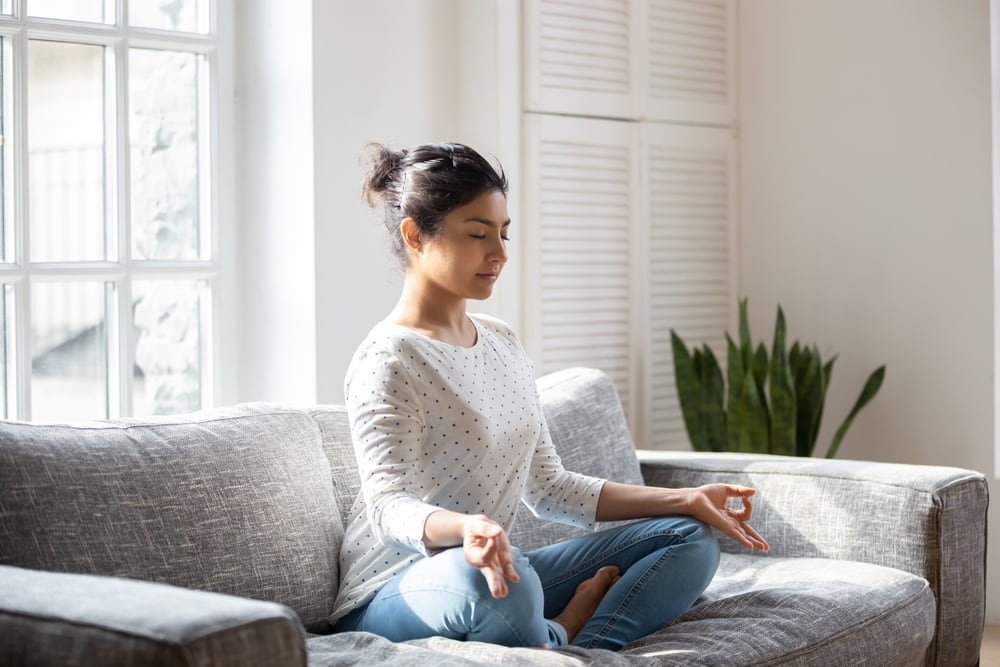How to create a mental wellness routine at home


Mental health is just as crucial a part of the overall well-being of individuals in today’s fast-moving life. Yet, many people struggle to find time for self-care, leading to increased stress, anxiety, and burnout. Establishing a mental wellness routine at home can provide balance, emotional stability, and improved overall well-being. But where do you start?
A structured wellness routine doesn’t have to be complicated—it simply involves integrating small, mindful habits into your daily life. From meditation and gratitude practices to regular movement and deep breathing exercises, prioritizing your mental health can lead to a more fulfilling life. This article presents some of the most basic yet very powerful mental health routines that help you set up your personal schedule in such a way that your stress level decreases. Let’s take the first step toward emotional well-being together!
Why a Mental Wellness Routine Matters
Mental health routine is a crucial thing to do. That is about balancing the emotions and dealing with the stress properly. Like a regular workout, the body strengthens, and regular mental health activities make the person’s emotional status more resilient and increase general well-being.
The Science Behind Mental Wellness


The structured self-care routines that are recommended based on positive psychology studies help greatly, based on the idea that anxiety and depression are minimized. Dr. Jon Kabat-Zinn argues that mindfulness promotes emotional regulation and stress reduction. Furthermore, Dr. Russ Harris has stressed in The Happiness Trap that to experience life satisfaction, self-care should be an intentional activity as it prevents burnout.
Benefits of a Mental Wellness Routine
- Reduces stress and anxiety – Daily mindfulness practices help calm the nervous system.
- Enhances emotional well-being – Engaging in self-care fosters a positive mindset.
- Improves focus and productivity – Mental clarity leads to better decision-making.
- Promotes better sleep – A structured routine supports relaxation before bedtime.
- Builds resilience – Strengthens the ability to cope with challenges.
Why Home-Based Wellness Routines Work


Adopting a home wellness routine makes it possible for you to give priority to mental health, save more money, and make a more flexible schedule of life… As for the expensive retreats or counseling sessions, at-home practices like journaling, meditation, and gratitude exercises are available.
Firstly, you have a mental sanctuary that, in turn, creates an easier life that you can easily endure and be more self-assured to face life’s obstacles when you have and adhere to a wellness routine.
1. Start Your Day with Mindfulness


Mindfulness is a powerful way to anchor yourself in the present moment. Dr. Jon Kabat-Zinn, author of Mindfulness for Beginners, emphasizes that mindfulness reduces stress and enhances overall well-being.
Ways to Incorporate Mindfulness into Your Routine:
- Morning meditation: Spend 5-10 minutes in quiet reflection.
- Mindful breathing: Focus on deep, intentional breaths.
- Gratitude journaling: Write down three things you’re grateful for.
Practicing mindfulness daily can set a positive tone for the rest of your day.
2. Develop a Self-Care Ritual


Self-care isn’t selfish—it’s essential for mental well-being. In The Happiness Trap, Dr. Russ Harris explains that self-care helps prevent burnout and promotes a balanced life.
Simple Self-Care Practices:
- Stay hydrated and eat nourishing foods.
- Engage in physical activity such as yoga, stretching, or walking.
- Limit screen time to reduce digital overload.
- Create a relaxing bedtime routine for quality sleep.
A structured self-care routine can be a game-changer for stress management and happiness.
3. Use Meditation for Anxiety Relief


The stress level in an individual’s life often determines whether they are healthy or not. In one of his books, the author of Why We Sleep, Matthew Walker, puts the spotlight on how meditation greatly enhances sleep quality, thus helping people keep their positive thinking on top.
How to Meditate at Home:
- Choose a quiet space free from distractions.
- Start with guided meditation apps like Calm or Headspace.
- Use visualization techniques to imagine a peaceful setting.
- Practice for at least 10 minutes daily for best results.
Even short meditation sessions can improve your emotional resilience and help combat stress.
4. Establish a Home Wellness Routine


The implementation of a well-structured home wellness regimen can cause mental health to improve and a feeling of steadiness to be developed.
Sample Daily Mental Wellness Routine:
- Morning: Mindfulness meditation and journaling.
- Afternoon: Physical exercise and healthy meals.
- Evening: Gratitude practice and relaxation techniques.
You create a nurturing environment for your mental health by setting up daily rituals.
Learn from Inspiring People
Many successful individuals prioritize mental wellness in their daily lives. Their habits and routines offer valuable insights into building emotional resilience and achieving greater well-being.
1. Oprah Winfrey – The Power of Self-Care
Through her devotion to mindfulness and self-care, Oprah Winfrey has been supporting it for so long. To a great extent, she gives credit for her accomplishments to her daily meditation and gratitude exercises, which let her remain connected and purposeful. She is also keen on writing in a journal which is a tool for her to reflect on her thoughts and emotions which contributes to self-awareness and mental clarity.
2. Tim Ferriss – Mindfulness and Productivity
Best-selling author and entrepreneur Tim Ferriss incorporates a structured morning routine into his daily life, which includes meditation, journaling, and cold exposure therapy. He believes that mindfulness not only enhances creativity and productivity but also helps in managing stress and anxiety. Ferriss also practices intermittent silence, taking time away from social interactions to reset his mind and enhance focus.
3. Serena Williams – Mental Strength in Sports
Renowned tennis player Serena Williams attributes her mental toughness to meditation, therapy, and visualization practices. She likes to do mindfulness exercises to keep herself focused and calm just before every major game. She also regularly uses positive affirmations to help in developing self-confidence and mental stability, which has been a useful approach for her to reach impressive career heights.
These people prove that mental health should be in top priority to get the most out of life both in the work and in personal life. Having such similar practices incorporated into your daily activities can provoke emotional toughness and lead you to a better psychological state.
Building a Sustainable Mental Wellness Routine


Establishing a mental fitness roadmap within your home will need you to be consistent with and to be encouraging with yourself. The power of little yet conscious activities—like meditation, self-care as the main priority and mindfulness training—sort of new way of leading life by being emotionally well. Improvement is not a perfect process yet it is the main determining factor in the process.
Forming the habits of wellness towards feeling calm, inspired, motivated, and focused at the same time is easier said than done, of course. It is not a quick fix, as it is all of the things together that produce the change that comes. In time, they are not even going to be efforts: they are going to be yet another fully automatic pattern and your benefits will be the ability to handle difficulties, stress, and be open to life.
What is the first mental wellness exercise you are going to try today? Share your thoughts with us in the comments!









